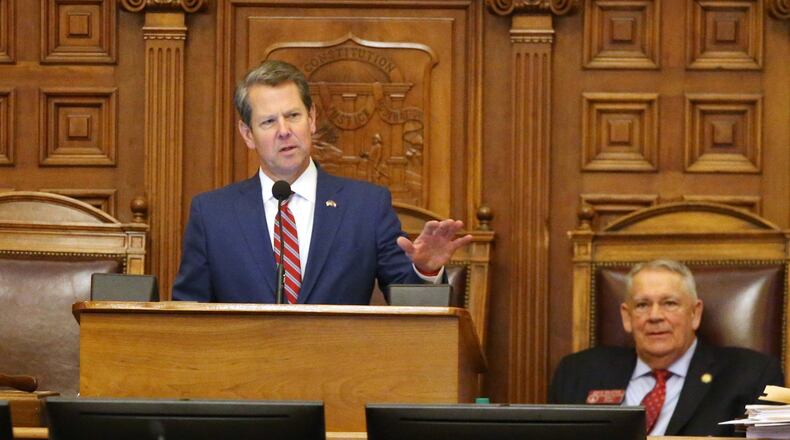Gov. Brian Kemp says he was never convinced one way or another on supporting a bill that changes the makeup and powers of DeKalb County’s ethics board. So he remained neutral, allowing the measure to become law Monday without his signature.
DeKalb voters will now decide whether to ratify the changes found in Senate Bill 7, legislation that delegation members clashed over during the 2019 session. Kemp said the lack of consensus among DeKalb elected officials makes it even more important for voters to weigh in on a November referendum.
VIDEO: Previous coverage of the DeKalb Ethics Board
“I have faith in the people of DeKalb County to determine for themselves what Board of Ethics structure best suits the needs of their county,” Kemp said in a written statement. “This referendum will be an important election, and I encourage the citizens of DeKalb County to vote and allow their voices to be heard on this important issue.”
Senate Bill 7 came about after the Georgia Supreme Court ruled last year that it was unconstitutional to allow a majority of DeKalb ethics board members to be appointed by outside groups such as the Chamber of Commerce. If voters approve, the DeKalb House and Senate delegations will appoint two members each. The county commission, chief Superior Court judge and probate judge will each appoint one member.
But the legislation does much more than that. It requires DeKalb County employees to funnel complaints through the human resources department before turning to the ethics board. The board board is no longer required to hire an ethics officer to investigate complaints.
The DeKalb County commission must give final approval to the ethics board rules every two years, creating a new layer of oversight. And the board would have to abandon investigations of elected officials or county employees if they resign, retire or complete their terms in office.
Jeff Rader, the county commission’s presiding officer, wrote an email to Kemp encouraging him to veto the bill. He dislikes the provision requiring employees to exhaust options with human resources before filing ethics complaints and criticized the diminished ethics officer role.
But Rader also had a more practical objection: The referendum now requires a countywide election in November when one otherwise would not have occurred. Most of DeKalb’s 12 cities have elections in the fall, but 55 percent of residents live in unincorporated DeKalb and would not otherwise be headed to the polls.
He said he worries about low turnout for such an important issue as the ethic referendum.
Sen. Emanuel Jones, D-Decatur, said he will help plan a series of town halls between now and then to educate voters on the changes under Senate Bill 7. He sponsored the measure and said the final version, although it has its detractors, is the result of hard work and compromise.
Sen. Elena Parent, an Atlanta Democrat whose district includes part of DeKalb, is already thinking about changes she wants the General Assembly to make next year to the ethics overhaul. For example, she suggests a time limit on how long employees must wait on human resources to act on concerns before they can turn to the ethics board.
Parent plans to work with colleagues to create a list of agreed-upon tweaks that will be part of the information communicated to voters ahead of the referendum vote.
About the Author
The Latest
Featured

